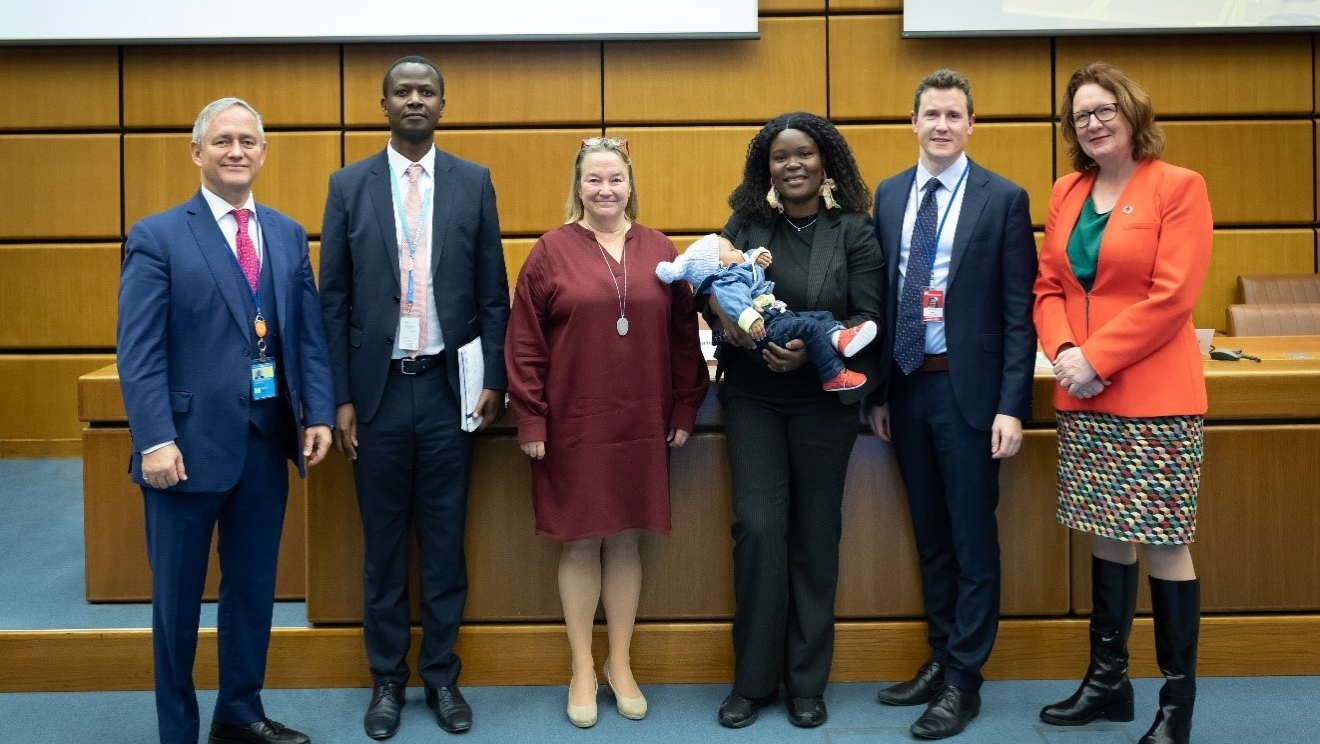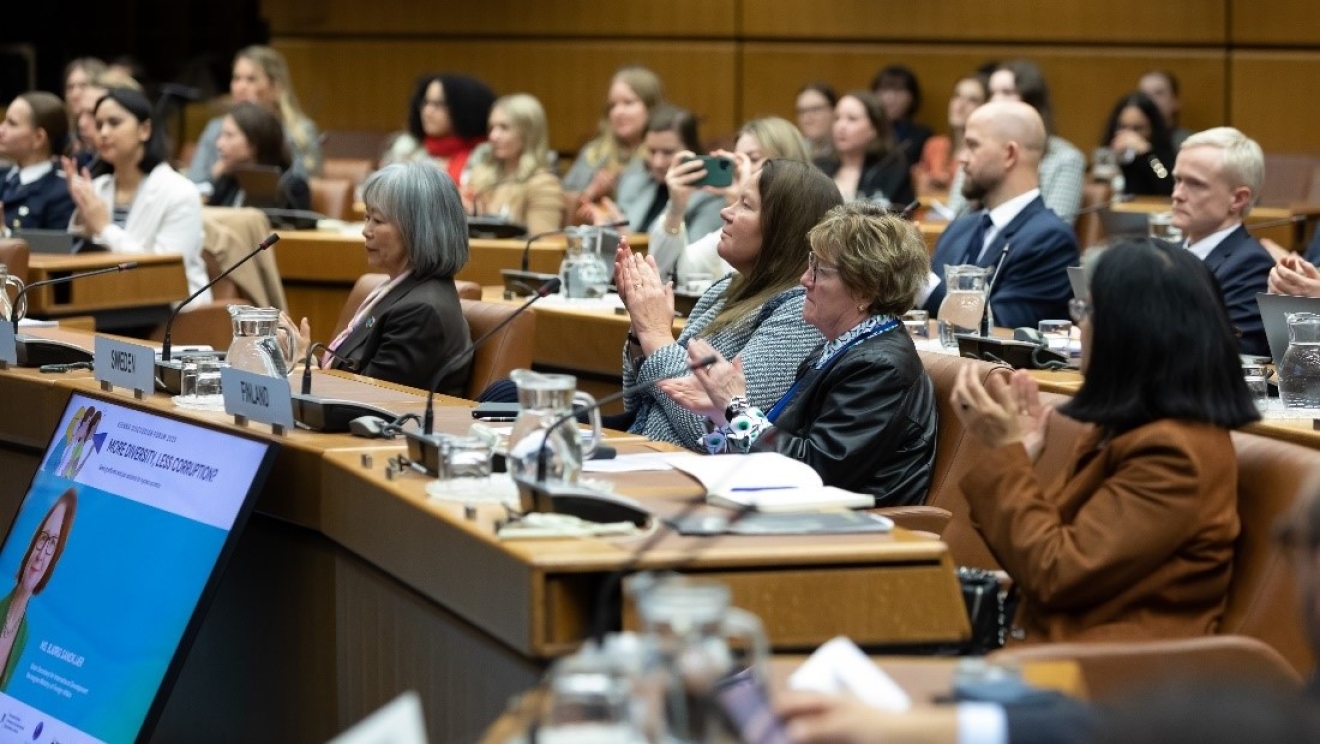

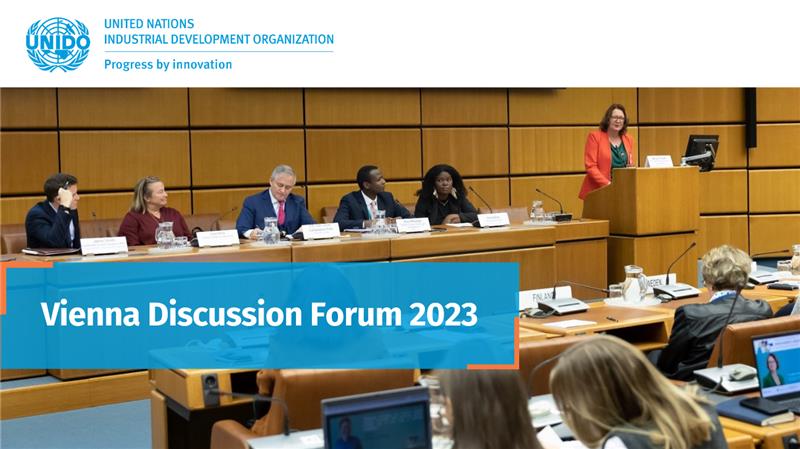
Photo by Jana Madzigon via www.artista.at
Vienna Discussion Forum 2023: More diversity, less corruption? – Seeking efficient and just solutions for a green economy
Vienna, 8 November 2023 – UNIDO and UNODC, together with the Permanent Missions of Finland, Norway and Sweden in Vienna, hosted the fifth annual Vienna Discussion Forum (VDF), a platform to discuss gender equality in the framework of the Sustainable Development Goals.
The 2023 Vienna Discussion Forum centered on the gender-corruption-climate nexus, exploring solutions for the key challenges faced by women and other marginalized groups in fully participating and leading in the green economy.
Bjørg Sandkjær, State Secretary for International Development at the Norwegian Ministry of Foreign Affairs, set the stage while opening the event. She reminded the audience of Norway's historical reliance on income from oil and gas and the challenges of a "resource curse." However, effective governance and a robust economy facilitated the country's transition from poverty to a welfare state. Despite global progress on women's rights, Norway emphasizes the need for continued action, exemplified by strengthened plans for women's rights and a focus on gender perspectives in addressing climate change and corruption.
UNIDO Director General Gerd Müller stressed the importance of good governance for the effective and sustainable operation of industries. He noted that corruption disproportionately affects women, who often face more challenges when starting their green businesses. These challenges include limited access to finance, resources, training, and technologies. Director General Müller recognized the innovative potential of women entrepreneurs and women-owned Micro, Small & Medium Enterprises, especially in reducing the impacts of climate change and environmental degradation. He called for a gender-responsive green transition that leverages women’s talents and encourages their participation, highlighting UNIDO’s commitment to work with its Member States to design and implement policies that empower women and enhance their role in the green economy.
Building on this, UNODC Director of the Division for Policy Analysis and Public Affairs, Jean-Luc Lemahieu, concluded the high-level opening ceremony. He emphasized the imperative need to combat corruption, economic crimes, and gender disparities in a gender-responsive manner. Citing the impact of corruption on both men and women due to societal norms, Lemahieu underscored the positive impact of gender equality in top management on economic performance in the private sector. He also advocated for ethical standards to prevent corruption and strengthen communities.

The high-level speakers set the framework for the discussion, paving the way for an expert panel with representatives from governmental organizations, the private sector, and the United Nations. Moderated by Luis Javier Campuzano Piña, Ambassador and Permanent Representative of Mexico to the United Nations in Vienna, the expert panel exchanged ideas on the gender-corruption-climate nexus. They analyzed the linkages between gender equality and corruption, highlighting the correlation between transparency, efficiency, sustainability, and gender equality in climate actions.
Coordinator for anti-corruption efforts Jamie Smith from the Swedish Development Agency (SIDA) emphasized the importance of considering the gender lens in combating corruption and the necessity to improve women representation in the fight against corruption. Rule of Law Center’s Director Tuija Brax highlighted the pervasive nature of corruption in everyday services, emphasizing the need to address broader societal aspects beyond increasing women's numbers. UNODC Crime Prevention and Criminal Justice Officer Jennifer Sarvary Bradford discussed how inclusiveness and diversity, especially in leadership roles, can mitigate corruption, contributing to a less corrupt society. The panelists provided examples of how anti-corruption initiatives can go hand in hand with efforts to advance gender equality and social inclusion within the green economy.
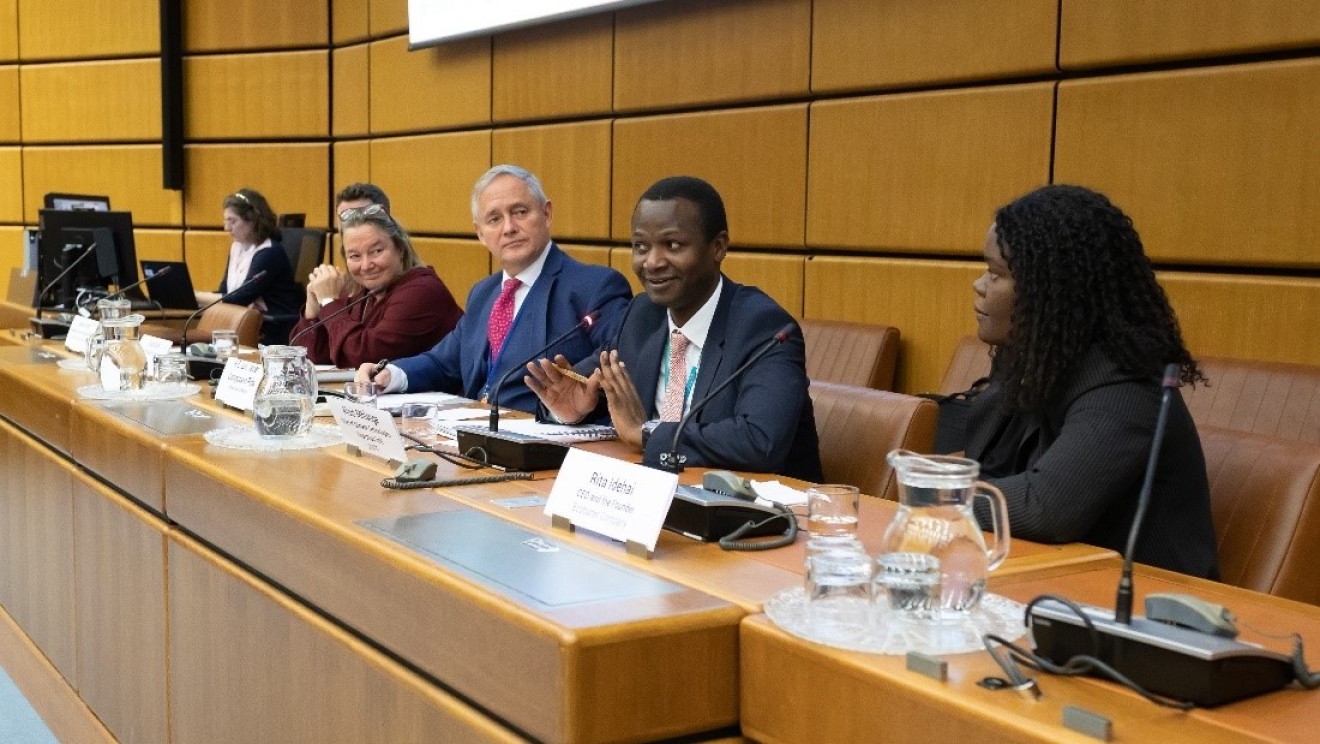
Moving to the practical aspects, the chief of UNIDO Climate Technologies Innovation Unit Alois Mhlanga highlighted the importance of looking at innovation in entrepreneurship as an opportunity to address both the practical and strategic needs of women in developing countries. CEO and cleantech entrepreneur Rita Idehai shared her experience in Nigeria, emphasizing the importance of providing technology, training, finance, and capacity development to improve gender equality and diversity in cleantech entrepreneurship.
Stressing the importance of transparency, gender-responsive public procurement, data collection and public engagement, the panelists addressed challenges such as insurance accessibility and gender-friendly facilities, underscoring the need for comprehensive strategies to address corruption and gender inequality. Concluding the expert panel, the participants agreed that there is no one-size-fits-all solution. They emphasized the vital role of international community in ensuring that gender inequalities are considered when fighting corruption and securing a just and inclusive green transition.
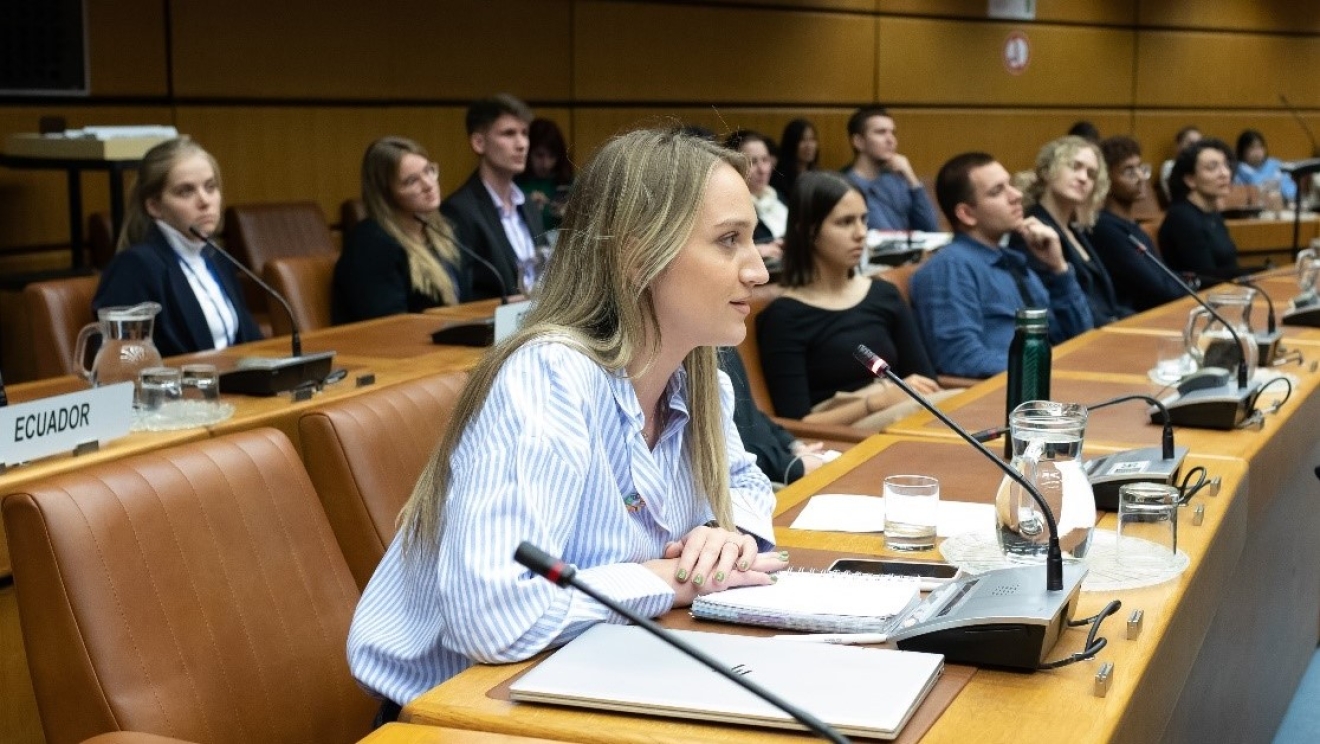
The panel intervention transitioned into an interactive discussion led by questions from the students of the Diplomatic Academy of Vienna and AIESEC. In the interactive discussion, the expert panel engaged with the audience on topics related to youth leadership, data collection, and gender parity. Speakers addressed the imbalance in female entrepreneurship and propose specific measures for Member States to encourage greater female representation. Jamie Smith emphasized the importance of tailored programmes reaching out to women and creating transparent, straightforward processes to attract female entrepreneurs. Alois Mhlanga suggested addressing practical needs of women preventing their participation in programmes and projects, and actively connecting female entrepreneurs with international financiers. Tuija Brax underscored the need for early education and changes in societal perceptions to encourage girls to pursue fields essential for environmental transformation, calling for immediate actions to address these challenges globally.
The panelists also encouraged the youth to participate actively in the discussion in the future, as they play a crucial role in advancing gender equality, inclusivity, transparency and climate action. Idehai emphasized the active contributions of young individuals, especially in climate and green initiatives, encouraging them to volunteer, create awareness, and demand action from leaders. Jamie Smith encouraged the youth to maintain higher ambitions and demand more in international settings. Jennifer Sarvary Bradford called on young individuals to challenge assumptions.
Overall, the expert panel highlighted the interconnectedness of corruption and gender equality, advocating for comprehensive strategies that consider societal norms and biases. The discussion provided valuable insights into fostering diversity and gender equality within the green economy while addressing corruption challenges. Reflecting on the discourse, Luis Javier Campuzano Piña encapsulated the key take-away message of the discussion stating, "The most important message that resonates from today's discussions is that any effort towards gender equality and the empowerment of women is a win-win situation for the whole world."
